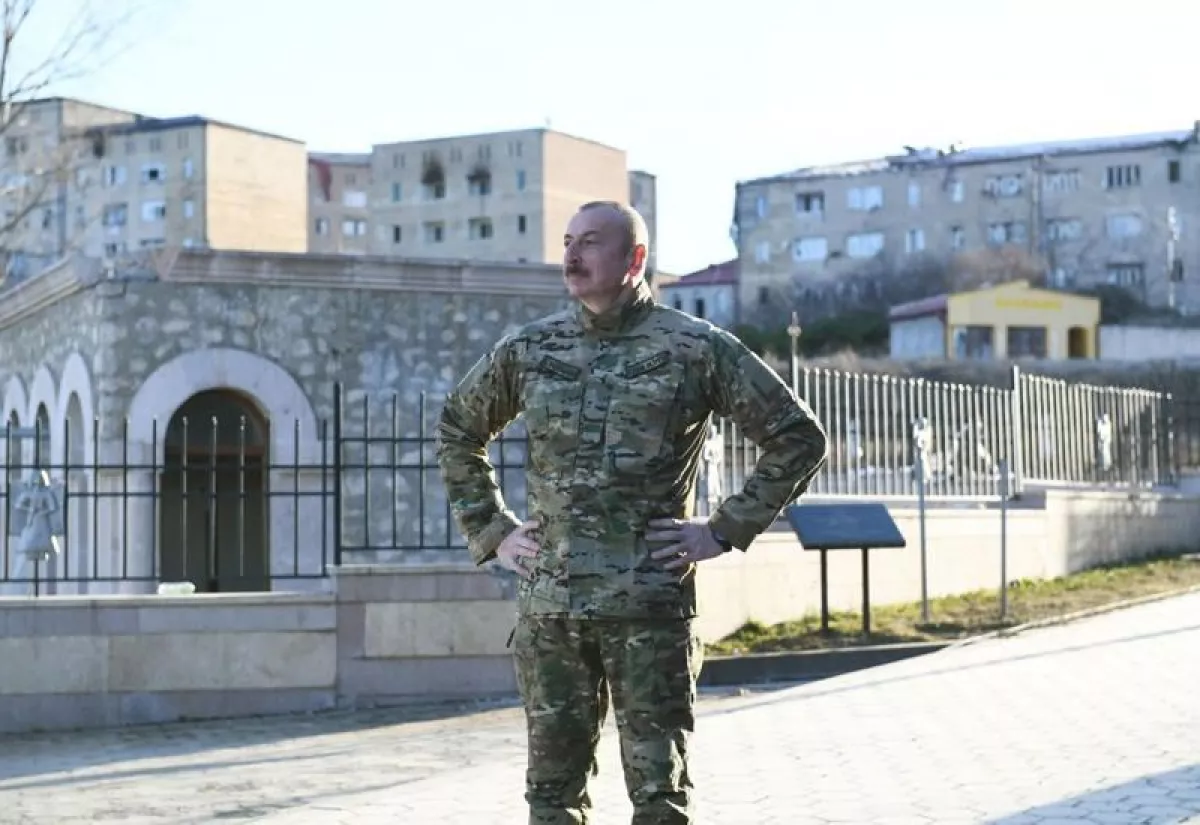Building a new Azerbaijan: Investing in tomorrow Transforming trauma into triumph
For over 25 years, Armenia's occupation of 20 per cent of Azerbaijan's territory consumed our national focus, leaving us with one clear objective: the liberation of our lands. This struggle mobilized all state resources toward building a formidable army capable of achieving our goals. The path to liberating Karabakh was long and costly, but it was the only viable option, especially as major world powers—particularly the OSCE Minsk Group co-chair countries—failed to advocate for a fair resolution to the Karabakh conflict under international law and Azerbaijan's territorial integrity.
Thus, the victory in the 44-day war holds immense value for each of us. We owe a debt of gratitude to our leaders who made what seemed impossible, possible. This historic victory was the result of a well-crafted strategy by President Ilham Aliyev, who is now embarking on another significant journey: the transformation of the state.
This transformation is poised to redefine national identity and goals, setting the stage for a prosperous future.
Let's delve into the numbers. For 2025, Azerbaijan's state budget revenues are projected to reach $21,538 billion, while expenditures are estimated at $23,334 billion. This results in a budget deficit of $ 2,071 billion—a significant figure.

This is not a small sum. However, it's important to note that Azerbaijan's strategic currency reserves are expected to hit $74 billion by 2024, according to Fitch Ratings. This means the reserves will be nearly 98 per cent of the projected GDP for this year.
This achievement underscores the effectiveness of Azerbaijan's economic model and highlights the nation's economic and political independence. With such substantial reserves, Azerbaijan is well-positioned to navigate its financial future confidently.
The Ministry of Finance has indicated that the US dollar exchange rate in Azerbaijan is anticipated to remain stable in the coming year. This stability serves as a crucial indicator of economic resilience, particularly in a global landscape fraught with conflicts in Europe and the Middle East, with potential instability in other regions as well.
In this context, Azerbaijan plans to reduce defence and security expenditures by 6.6 per cent in 2025 compared to the approved forecast for 2024. This decision sends a clear message to the international community: Azerbaijan does not seek a new war. Having fully restored its sovereignty and territorial integrity, the country views its historical mission as accomplished.
Looking ahead, Azerbaijan faces new historical tasks. In 2025, $2,352 billion, or 10.1 per cent of the state budget, will be allocated for the restoration and reconstruction of the territories liberated from occupation. Azerbaijan reclaimed all its lands previously occupied by Armenia through its own efforts, and now is committed to rebuilding Karabakh—a sacred area of profound significance—using its own resources and determination.

In 2025, Azerbaijan plans to allocate $2,939 billion for social protection and social security, reflecting a 13.8 per cent increase compared to the approved forecast for 2024. Expenditures for health will rise by 7 per cent, while education and cultural allocations will increase by 9 per cent and over 10 per cent, respectively.
These significant investments represent a strategic commitment to the future of nation. Azerbaijan is already garnering global attention for its military, political, and diplomatic achievements. It captivates millions of tourists with the stunning beauty of Baku and other cities, and it impresses with the rapid reconstruction and revitalization of liberated Karabakh. Now, Azerbaijan stands poised to demonstrate to the world how to create a future-oriented, socially responsible state amidst complex geopolitical realities.








